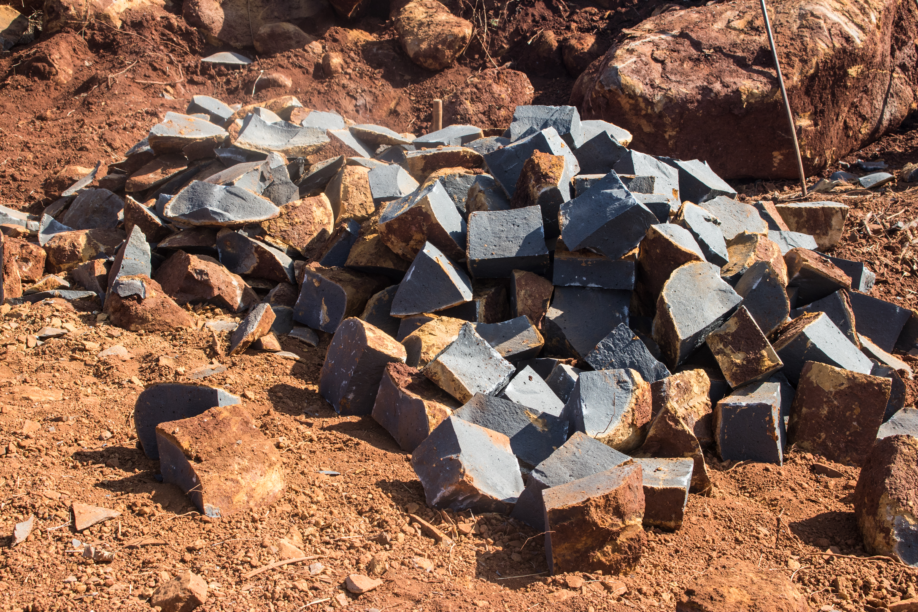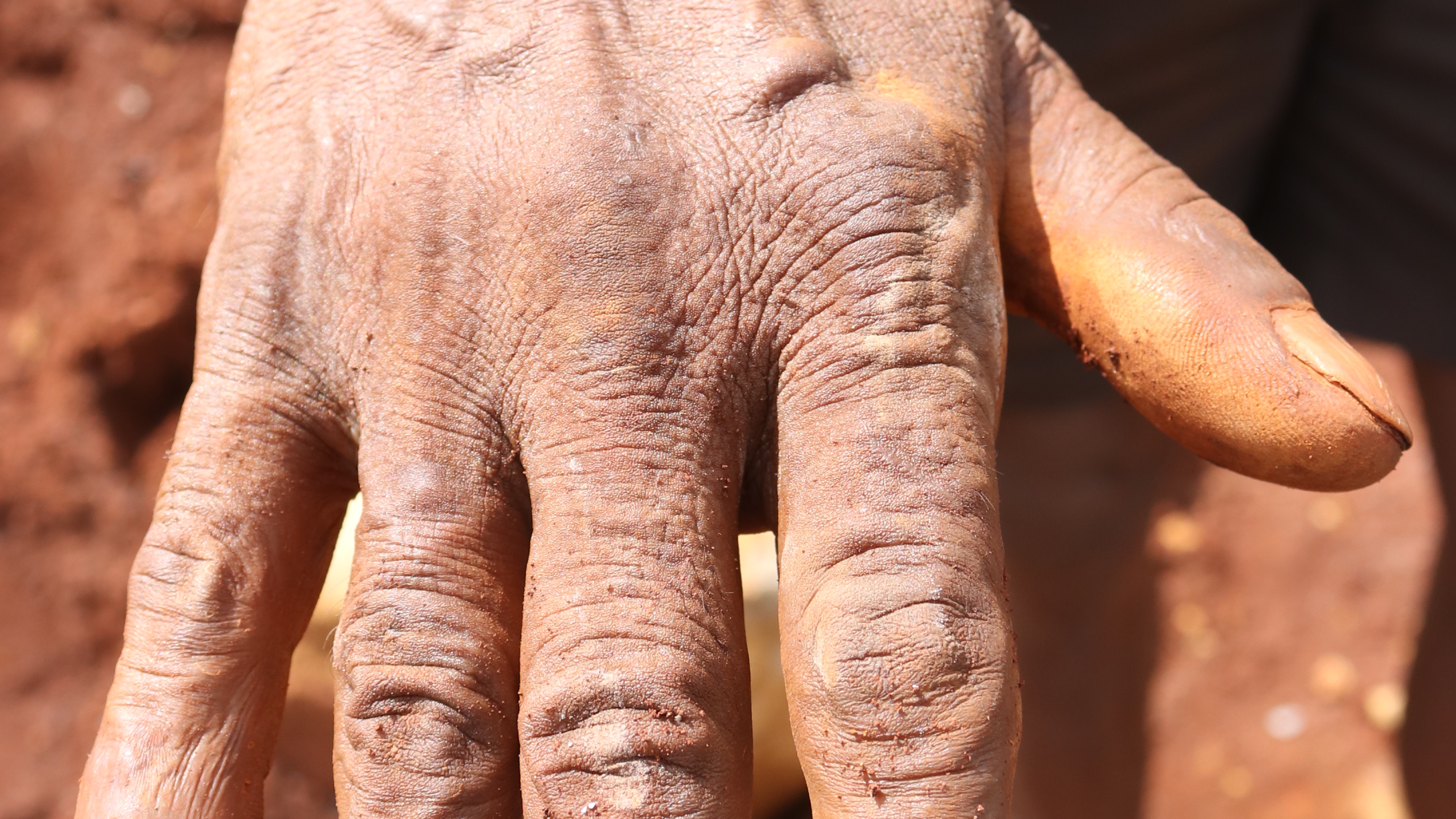Wadars are traditional stoneworkers, stone dressers, sculptors, and stone transporters; Gadi Wadars are a subcaste, specializing in breaking massive stones weighing more than three tonnes, using only the simplest hand tools. Ramchandra Wadar, 60, belongs to the last generation to continue in this traditional caste-based occupation.
A resident of Gargoti village in Western India’s Maharashtra state (Kolhapur district), Ramchandra tells me that in the 1990s there were at least 50 stone workers here; today there are just ten.
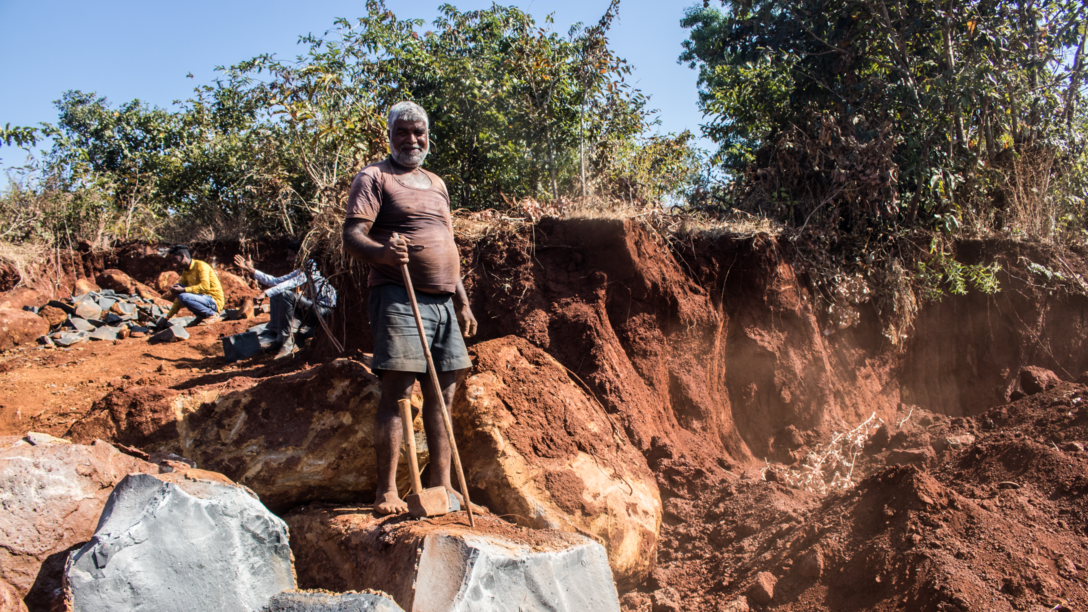
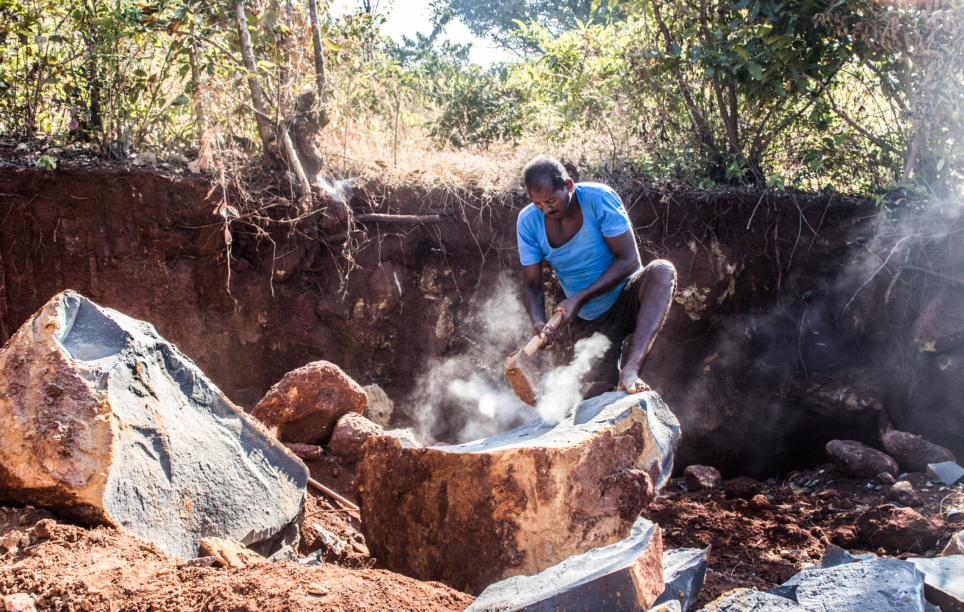
The stone artists here cut the stones in different shapes and sizes by hand, using only hammers and crowbars. They have their hammers sharpened for Rs 50 (0.66 USD) in Gargoti weekly.
It’s dangerous work. Fractures, scorpion sting, snake bite, muscle spasms, bleeding cuts, and other wounds are common.
“None of my four sons break stones,” Ramchandra says. “Who’s going to work so hard? And why should they?” His sons work as labourers in different industries. His wife Shahitra once worked breaking the stones into khadi, crushed stone used for building roads, but stopped many years ago.
Other stoneworkers left the village in the 1990s to seek opportunities elsewhere, and some retired. “This occupation will die in the next five years. Even I will retire by then,” he says.
Shamrao Wadar, 49, is also the last in his family to do this work. His younger son Ajit is 18 and in the first year of an undergraduate degree in commerce; his brother Akash, 24, works as a clerk in the village Panchayat. Their mother, Savita, 35, is a homemaker.
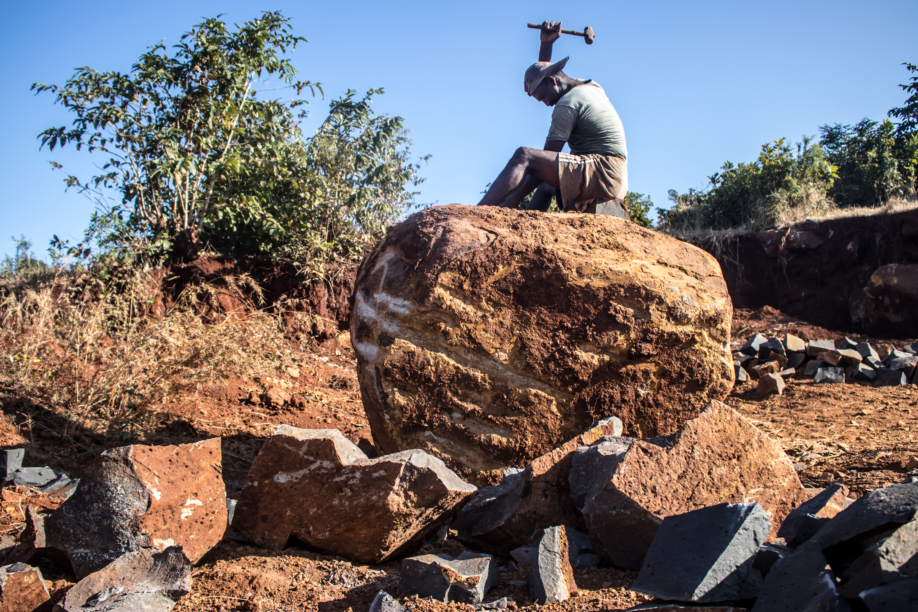
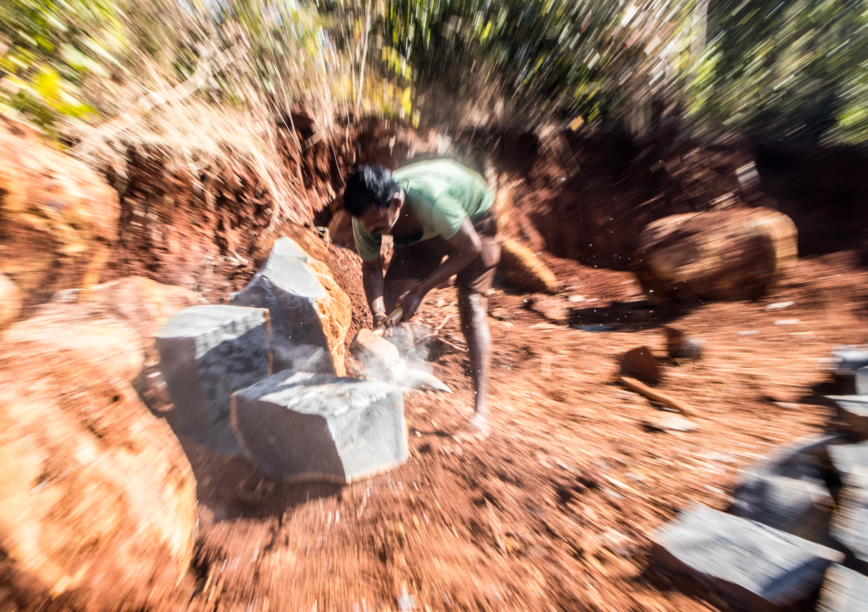
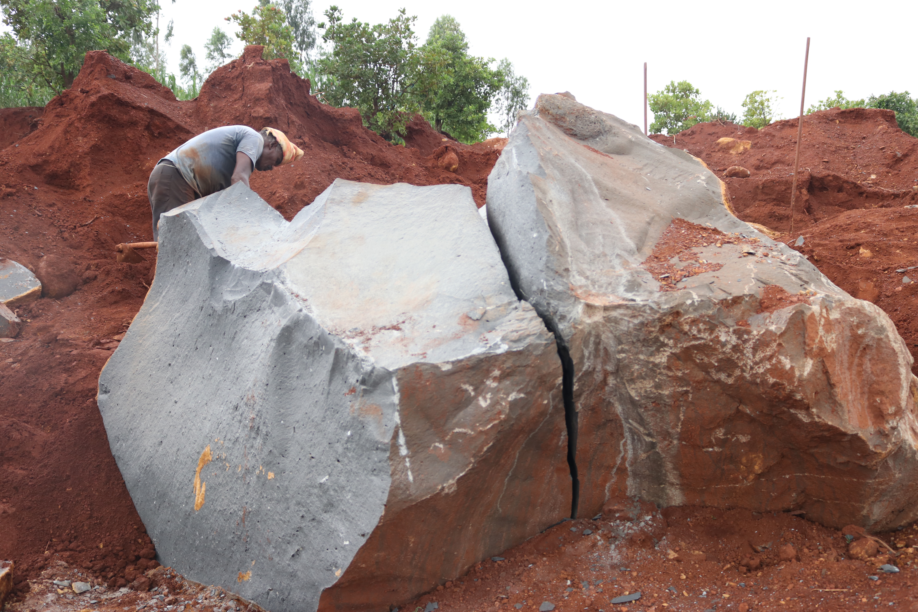
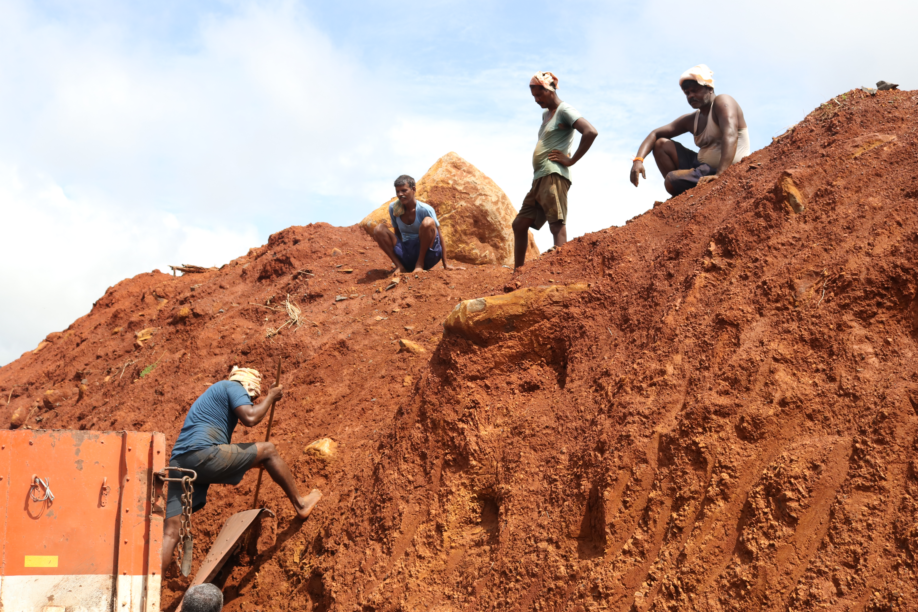
Dabar, Farshi, Kopre, Phadi, Padtar, Kandka, and Paya Bhari are among the names for different types of stones in Marathi, the regional language of Maharashtra. Paya bhari (stone fine), used in masonry footing, to fill in voids and uneven ground surfaces, is the cheapest at Rs 1600 (21.21 USD) per dumper (around 9 tonnes). A paving stone two feet long and 10 inches wide and weighing at least 20 kg, costs Rs 150 ($2 USD). Engineers and contractors procure the stones directly from Wadars, who transport them to building sites.
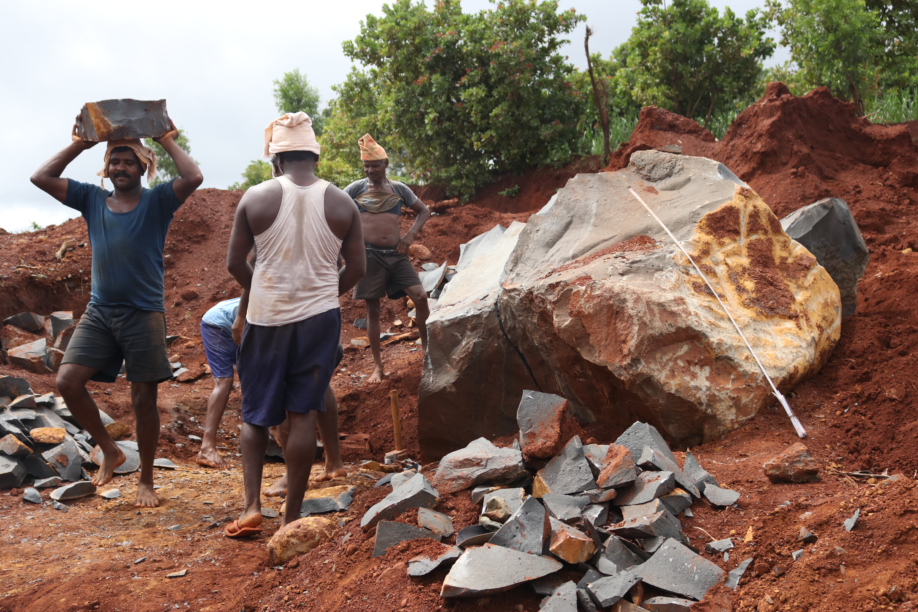
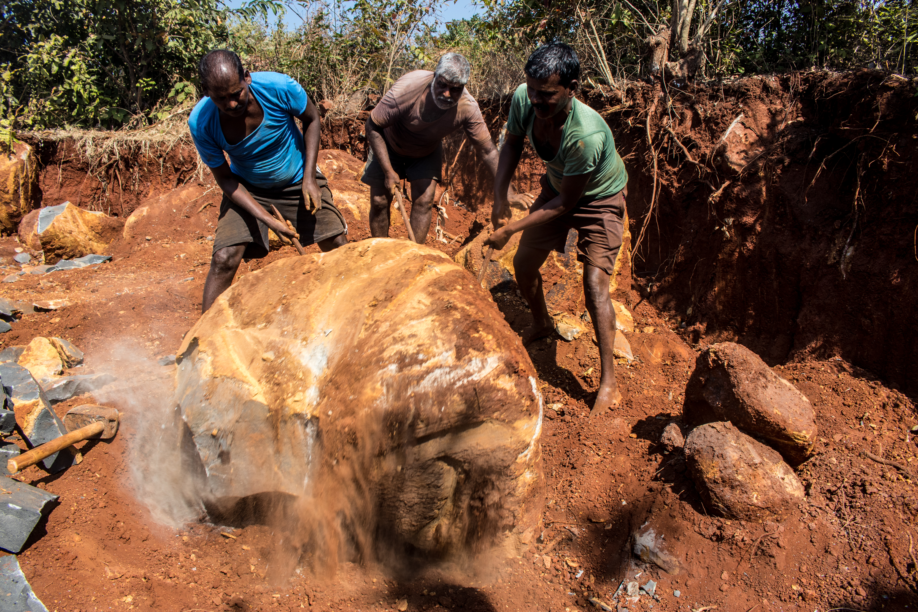
For the last eighteen months the stone artists have been working in the Girgaon village, for an average daily wage of approximately $15 USD. About once a week they hire a bulldozer to loosen and remove the densely compacted soil to help ease away the giant stones. The bulldozer owner charges Rs 1000 per hour (~$13.25 USD) and the Wadars spend Rs 32,000 ($424 USD) on the service every month. The work stops in the rainy season, usually from June to September, when the pathways to the fields are too clogged with mud to navigate.
From 8:00 a.m. to 2:00 in the afternoon, the workers break around 500 stones weighing close to 10,000 kg. On the day of my visit, Shamrao had a target of breaking 100 paving stones. “So far, I’ve reached 40,” he said, gasping for breath as he lifted the hammer. “I’ll finish it by 2:00.”
No scale or measuring tape is used in this work. “We make the measurements using our hand,” Shamrao told me. The workers eat twice; once at 10:00 a.m. and next at 1:00 p.m. They eat lightly in order to ensure they can break the stones swiftly in the heat, and not puke because of the back-breaking labour.
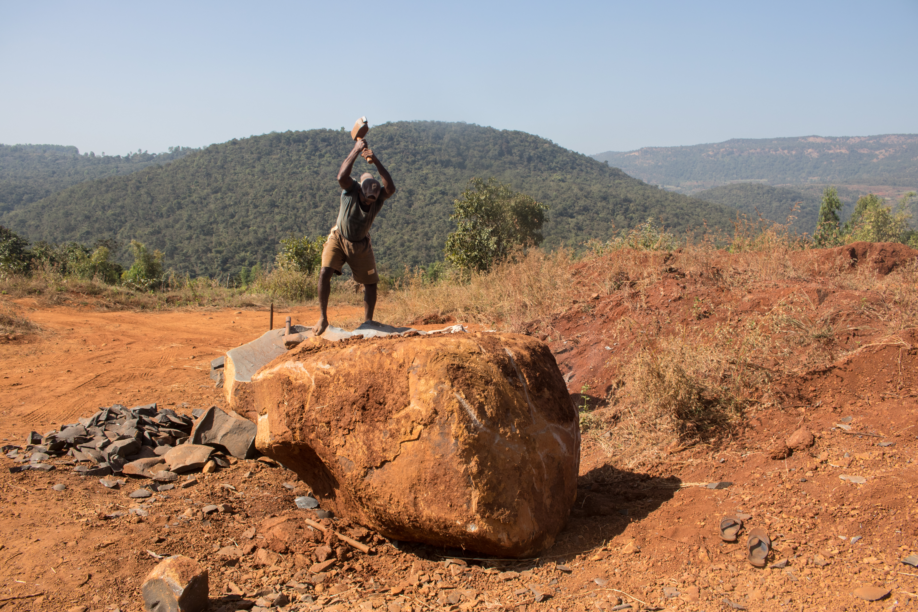
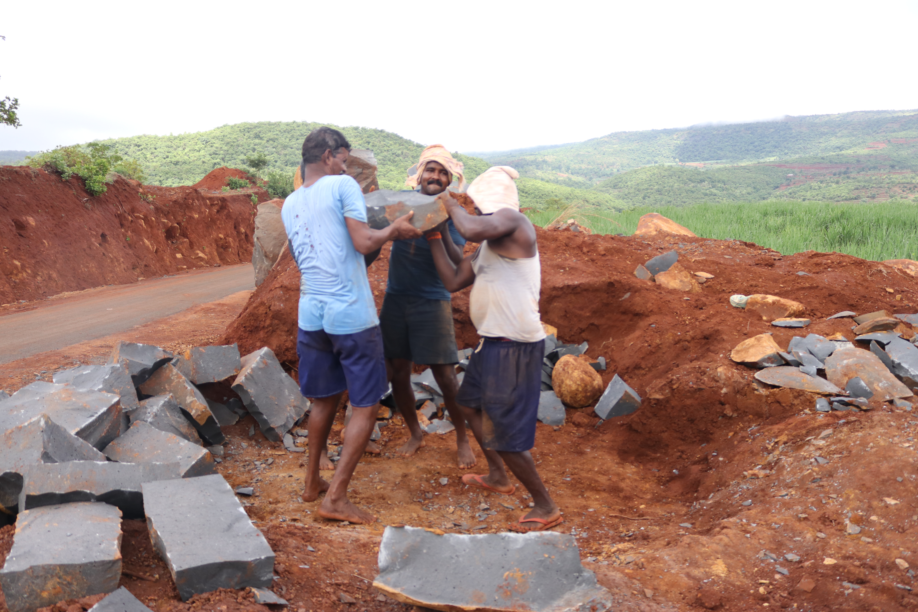
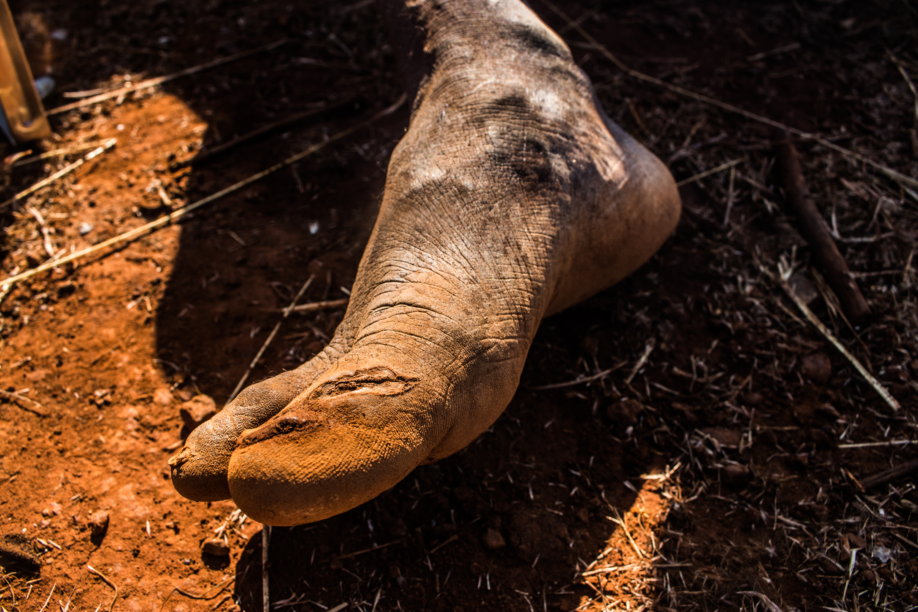
Farmers benefit from having stones cleared from mountainous fields, which can be farmed afterward. It will take several years to clear the stones at this site. The men travel from Gargoti village to Girgaon and other nearby sites on their bikes. “We leave all our equipment here in the night. No one steals it,” says 45-year-old Dattatray Wadar. “Who will steal such heavy hammers,” he grins.
